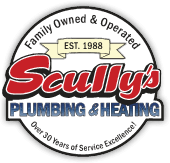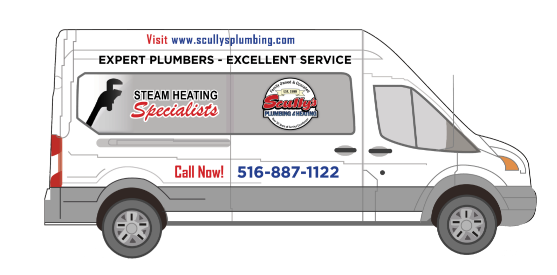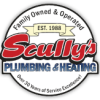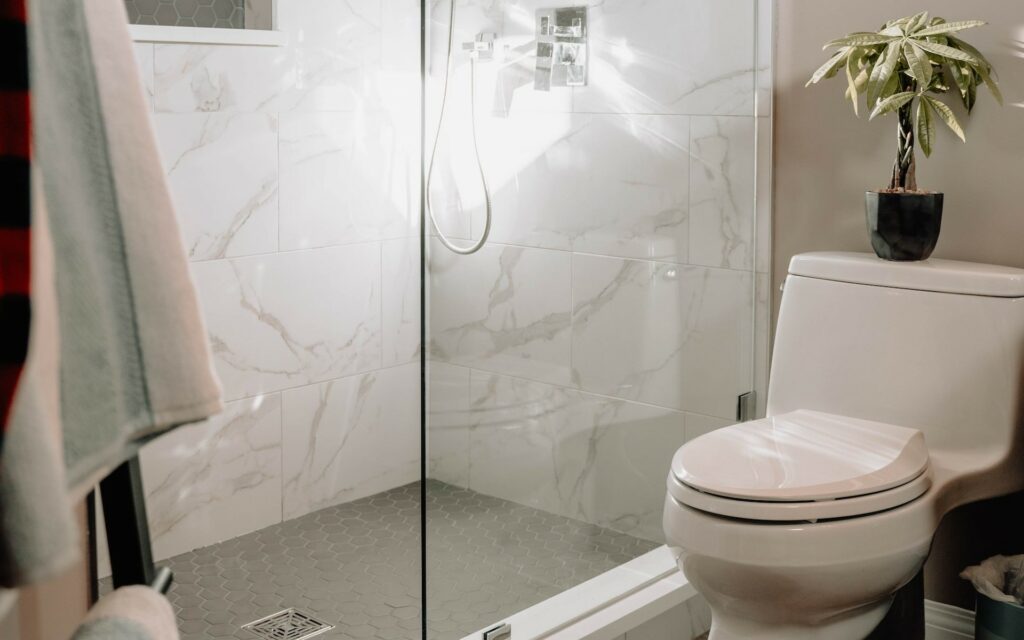
If you’re like most people, you shudder at the thought of cleaning your toilet but know that it’s a necessary evil. Unfortunately, rust stains on a toilet make the task infinitely worse. No matter how much you scrub with your regular detergents, you’re unlikely to make any progress toward getting your toilet bowl sparkling clean.
Having a toilet with rust stains can be embarrassing and unsightly since it can make your bathroom appear dirty when it isn’t. To avoid uncomfortable situations, Scully’s Plumbing & Heating team wants to save you time and money by recommending a few ways to remove and prevent rust stains on your toilet bowl.
Why Does My Toilet Have Rust Stains?
Since rust stains are frustrating to get rid of once they settle in, it’s an excellent idea to learn why they appear in your toilet bowl. If your toilet bowl has rust stains, it usually indicates high iron levels in your water supply.
Each time you flush your toilet, it leaves a rust residue once the iron particles oxidize, and this causes stains. If you have an older house, the rust stains in your toilet bowl could be from deteriorating iron pipes in your bathroom.
How Can You Remove and Prevent Rust Stains in Your Toilet Bowl?
Now that you know how rust stains occur, it’s time to look at how you can remove and prevent them in your toilet bowl.
Yet before diving into the details, we want to mention that you should avoid using harsh chemicals like bleach to clean away rusty stains. This is because bleach will chemically change rust stains, making the problem worse.
In addition, you need to be careful about the tools you use to clean away the stains in your toilet bowl and how vigorously you scrub. The wrong tools could lead to scratching and damage inside your toilet. Scratches will make it much harder for you to clean future stains as the grime will embed itself in the scratches.
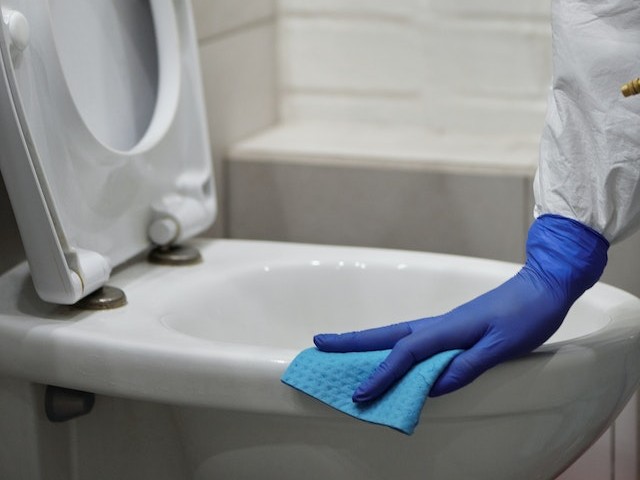
What You Can Use To Remove Rust Stains
Now that you know what not to do, it’s time to discuss how to remove rust stains from the toilet bowl naturally. Before attempting any of the below methods, we discuss, you need to turn off your valve that feeds water into your toilet before flushing to leave the bowl empty. Emptying your toilet bowl of water will make it easier to clean.
- Borax: You can use borax to eliminate rust stains. You need to dust about a quarter cup of borax onto the stain in your bathroom toilet bowl and scrub with a brush to get rid of it. Borax is a harsher chemical than bicarb but isn’t nearly as harmful as bleach.
- Vinegar: One of the best natural methods for removing rust stains on your toilet bowl is using vinegar in a spray bottle. To make the vinegar solution, you will need mixed one part water and one part vinegar. Once you have completed this, spray it onto the stain and scrub it with a stiff-bristled toilet brush.
- Pumice stone: If you don’t have time to make a vinegar solution or get some borax from the shop, you can try using a pumice stone. Nowadays, there are convenient pumice sticks that you can use to get rid of stains. All you need to do is rub this stone directly on the stain, which should come right off. Soaking the stone will soften it, but still be careful not to rub too hard, as this can cause scratches.
- Baking soda: Those who don’t want to use borax should try baking soda. To get rid of rust stains, you will need to make a paste with three parts baking soda and one part vinegar. You will put them directly on the stain as a powdered cleanser when mixed up.
These are a few solutions to eliminate rust stains in your toilet bowl. If you would like more ideas, speak with a professional plumber.
How Can You Prevent Rust Stains?
As you now know, removing rust stains from a toilet bowl can be time-consuming, especially if the stain recurs. That’s why it’s best to learn how to prevent the stains. Have a look below to learn what you need to do.
- Clean your toilet regularly to avoid leaving rust to build up and deposit on the surface of your toilet bowl. Try a solution we mentioned above.
- Install an iron or water softener filter, as these can eliminate the staining issues at the source by filtering your water and removing iron. A professional plumber like the ones at Scully’s Plumbing & Heating can help you with this.
- Consider upgrading the piping in your bathroom. Replacing your iron pipes will lessen the chances of rust deposits staining your toilet bowl.
For more information surrounding what you can do to prevent rust stains in your toilet bowl, consider consulting a professional plumber.

Removing Rust Stains From Your Toilet Bowl FAQs
- Will vinegar remove rust from a toilet bowl?
Vinegar is an all-purpose cleaning solution that contains acetic acid. It’s an acid that is effective in removing rust from a toilet bowl. In addition, it isn’t harmful to the environment like bleach. The only real negative is that it leaves a pungent odor that some might dislike.
- Will Coke remove rust from a toilet?
Believe it or not, you can use Coke to remove rust from a toilet. Because Coke has a mild acid as one of its ingredients and is carbonated, it effectively eats away at rust stains on a toilet bowl and eliminates them. If you don’t want to use the original Coca-Cola, you can use a generic version, as it will probably be as effective.
- Does WD-40 remove rust stains from toilets?
WD-40 is an effective solution for removing rust stains from toilets. With WD-40, you must spray it on and let it sit before wiping it away. Sometimes WD-40 doesn’t work on tough stains, so it’s a good idea to have a backup plan.
Get In Touch With A Plumbing Experts At Scully’s Plumbing & Heating To Discuss Your Plumbing Concerns
It’s clear that removing and preventing rust stains from a toilet bowl is possible and isn’t as complex as you might have thought. You can get many toilets clean and more presentable for guests with the right solution and tools.
But, if your toilet is beyond saving, speak with the Nassau County plumbing experts at Scully’s Plumbing & Heating about installing a sparkling new toilet plus water filtration options to keep it looking like new without all the scrubbing!
Contact us to schedule your appointment today!
